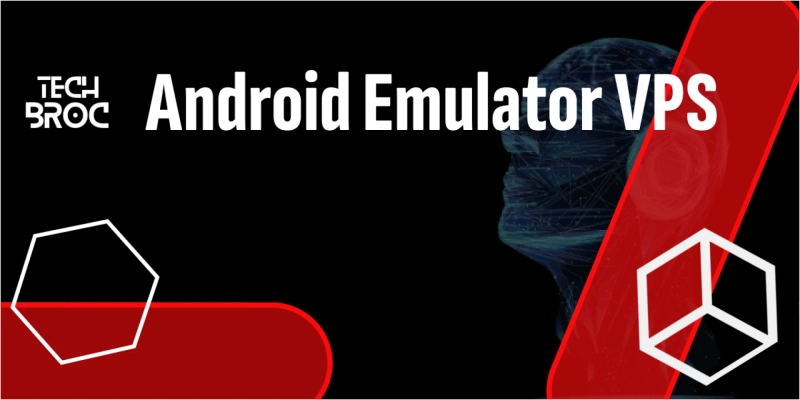Running an Android emulator on a Virtual Private Server (VPS) is a great way to leverage powerful server resources for smooth and efficient mobile app testing or gaming. To ensure you choose the Best VPS for running Android emulators, it's crucial to meet certain system requirements. These requirements depend on factors such as the emulator you're using and the tasks you intend to perform. Below, we explore the necessary components to run an Android emulator effectively on a VPS.
1. CPU (Processor)
The CPU is the heart of any system, and for running Android emulators, you need a processor with sufficient power to handle the workload. Virtual machines often benefit from multi-core processors, as they allow for better multitasking and faster performance.
- Recommended: A VPS with at least a 4-core CPU (or higher) is ideal for running Android emulators smoothly. Emulators like Bluestacks, Nox, or Genymotion perform best with processors from Intel or AMD that support virtualization.
- Virtualization Support: Make sure that the VPS supports hardware-assisted virtualization (Intel VT-x or AMD-V), as emulators rely on this feature to emulate the Android environment.
2. RAM (Memory)
Running an Android emulator can be memory-intensive, especially if you’re running multiple instances or performing heavy tasks like gaming or testing resource-demanding apps. Insufficient RAM can cause slowdowns, lag, or even crashes.
- Recommended: At least 4 GB of RAM for basic usage. For better performance and multiple emulator instances, 8 GB or more is ideal.
- Note: Some Android emulators allow you to allocate specific amounts of RAM to each virtual device. If you're running more than one emulator at a time, the total available RAM on the VPS should be higher to ensure smooth operations.
3. Storage
The storage space needed for running an Android emulator depends on the emulator type and the number of apps or virtual devices you plan to install. Emulators often require additional storage for the Android operating system, apps, and any data associated with them.
- Recommended: SSD storage is preferred due to its speed, which leads to faster loading times and better overall performance. You’ll need at least 20 GB of storage to install the emulator and a few apps.
- Optimal Storage: For more extensive testing or gaming setups with multiple virtual devices, 40 GB or more may be required.
4. Operating System
The operating system of the VPS plays an essential role in compatibility with Android emulators. Most Android emulators support both Windows and Linux, but some emulators might have better performance or support on certain systems.
- Recommended: A VPS running Ubuntu (or any modern Linux distribution) is often the best choice for Android emulators, as it’s stable and lightweight. Some users prefer Windows Server for using Windows-based emulators like Bluestacks.
5. Network Connection
For tasks like app testing or gaming, a stable and high-speed internet connection is essential to avoid lag and delays, especially if you are syncing apps with the internet.
- Recommended: A 1 Gbps or higher network connection is ideal, especially for multiplayer games or apps that require constant internet access.
6. Graphics (GPU)
Graphics processing is especially crucial for running Android emulators for gaming or other graphic-heavy tasks. Many Android emulators use GPU acceleration to improve performance.
- Recommended: A VPS with GPU capabilities (such as NVIDIA Tesla or AMD GPUs) will significantly improve performance for graphic-heavy applications. However, most basic emulators can still run on VPS systems without a dedicated GPU, as long as they support virtualization features.
7. Additional Considerations
- Operating System Requirements for Emulators: Ensure that the emulator software you're using is compatible with the VPS operating system (Linux or Windows).
- Resource Allocation: Some VPS providers offer high-performance servers with allocated resources for gaming and other high-demand tasks, which may be ideal for running multiple Android emulators.
Conclusion
When choosing a VPS for running Android emulators, ensure the server meets the necessary system requirements for CPU, RAM, storage, and network capabilities. A VPS with a multi-core CPU, sufficient RAM (4-8 GB or more), SSD storage, and stable network connectivity will provide a smooth experience. Additionally, consider the type of tasks you intend to perform, whether it’s app testing, gaming, or development, as these will influence your ideal configuration. By selecting the right VPS with the right specs, you’ll be able to run Android emulators effectively, boosting your productivity and performance.


